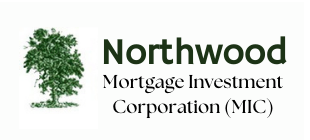If you live in a part of Canada which has low rental vacancies, you might be tempted to invest in rental properties. A rental property usually generates revenue and often turns out to be a good long-term investment. However, it’s important that you understand the difference between residential and commercial mortgages Ontario.
Commercial Mortgages Ontario
Commercial real estate is used for the location of a business or to rent out, thereby generating income for the owner. On the other hand, residential real estate is an owned residence. However, mortgage issues in both sectors can become confusing because some rental properties that produce income are financed by a “residential loan.” In this post, we are going to discuss commercial and residential mortgages and explain the differences.
When it comes to borrowing for investment properties that will be used to produce rental income, a property with four units or less will be financed by a residential mortgage loan. Conversely, a rental property with five units or more will be financed with a commercial mortgage in Ontario. So the size of the building with its units will determine what kind of loan you need to apply for.
A Property’s Income Will Determine How the Loan is Underwritten
Within the commercial real estate and loan industry, a multifamily property means a property with more than five units. However, things can get confusing when a real estate salesperson calls a two-family property as a “multifamily.” Technically, they are correct, but it can lead to confusion because, for banks, the difference is about the size of a loan during underwriting.
Generally speaking, commercial mortgages in Ontario are sized and underwritten based on an asset’s projected net operating income (NOI). On the other hand, a residential mortgage is underwritten on the credit history and income of the people buying the property.
How the property is expected to perform in the open market will largely determine your eligibility for a commercial mortgage in Ontario. Commercial mortgages are looking for borrowers who can confirm that the property has had a minimum of 90% occupancy for the last 90 days and that the prospective buyer has a networth equal to or greater than the loan they are seeking.
Financial Position for Commercial Mortgage in Ontario
Any prospective borrower must be able to prove that they have not experienced foreclosure and don’t have a history of bankruptcy or experienced foreclosure. Compared to a residential loan, an individual who wants a commercial loan does not have to provide details about employment history or pay stubs. Finally, a bank will view an ideal lender as someone who has at least one year of principal and interest in security.
If you are applying for a commercial mortgage in Ontario for the first time, you must take into account prepayment penalties. These are the fees a bank will charge if you decide to pay off a commercial mortgage before it matures. Such prepayment fees are not that common because most people are not in a position to pay off the loan early. But suppose you come into a substantial amount of money, you will be tempted to pay off your loan before its term. It is possible, but not without a fee. This is because the bank or lender is expecting a sum of interest from the loan it has provided to you. By paying off a loan early, the bank or loan group needs to get the interest revenue via a fee.
If you are considering purchasing a commercial property and want to understand the ins and outs of a commercial mortgage, call Northwood Mortgage today. Get a no-fee consultation at 888 257 8130!






































